History
Kiang Wu Nursing College of Macau (KWNC), formerly known as Kiang Wu Nursing and Midwifery School, is a subsidiary of Kiang Wu Hospital Charitable Association (KWHCA) founded in 1923. For nearly a century, recognized to be assiduous, highly-motivated and accountable, nurses nurtured by KWNC have been highly commended by health care institutions of Macao and beyond.
KWNC was built 50 years after the establishment of Kiang Wu Hospital, due to the fact that western medicine was not popularised yet. On account of the increasing number of inpatients and nursing workload prompted by the establishment of Kiang Wu Hospital's in-patient department in 1919, the proposal of founding a nursing school was brought forward. At the beginning of founding, the School was named "Kiang Wu Senior Nursing School" where eight doctors from Kiang Wu Hospital were invited to serve as volunteer teachers. The School designed its curriculum according to the stipulation of the Chinese Nurses Society, and gave separate lectures for different subjects. The first batch of nursing students, seven of them, graduated in 1926.
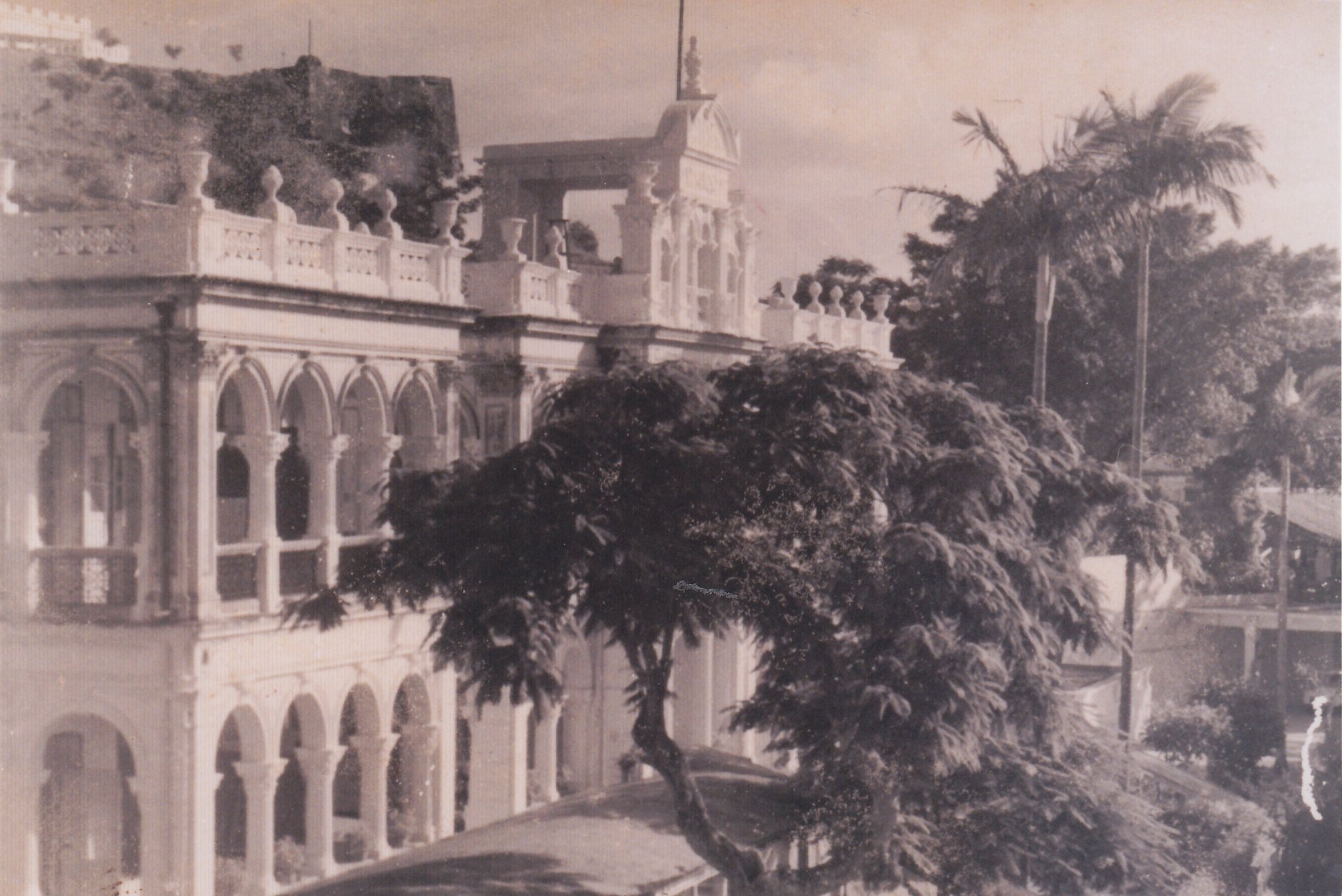
1. Health Care Development Triggered by Sino-Japanese War
Following the Lugou Bridge Incident in 1937, Hong Kong was defeated and refugees from various places flocked to Macao, leading to the city's health care development and urgent demand for nursing talents, and a campus building was built at the current Out-Patient Department 2 area. At that time, with the visionary management and contributions of a number of school principals and leaders including Dr. Huang Yaojian, Dr. Ke Lin and Ms. Lin Liujian, a solid foundation of the School was laid. In an effort to align with the health care system of the Chinese Mainland, the School formulated its curriculum according to the stipulation set out by the Chinese Nurses Society, and was renamed "Kiang Wu Private Senior Nursing Occupational School" in 1945 for the implementation of more rigorous student management and training.

In 1948, midwifery subjects to be completed in one year's time were included in the nursing programme, and the duration of nursing subjects was shortened from the original three years and nine months to three years. The School was also renamed "Kiang Wu Private Senior Nursing and Midwifery Occupational School".
In 1951, to address social needs, the School gradually shortened the study duration of current students across different years of study, and the School was further renamed "Kiang Wu Private Nursing and Midwifery School".
In 1954, with the development of Kiang Wu Hospital and the escalating demand for high quality and quantity nursing services, the duration of nursing and midwifery subjects was lengthened to three years and one year respectively. The entire nursing and midwifery programme lasted for four years, and the key focus of the fourth year of study was on obstetrics and ward practice.
Owing to the ongoing expansion of various Hospital departments and the Nursing School, the existing campus and dormitory were filled to capacity. Fortunately, President of KWHCA Mr. Ho Yin and businessman from Hong Kong Mr. Ho Tim contributed funds for the construction of "Cheng-Kai Memorial Hall" in commemoration of their deceased father Mr. Ho Cheng Kai. The Hall, inaugurated in April 1956, served as the new school building and student dormitory, with which students were provided with a more favourable learning environment and the nursing training could be more centralized and better managed.
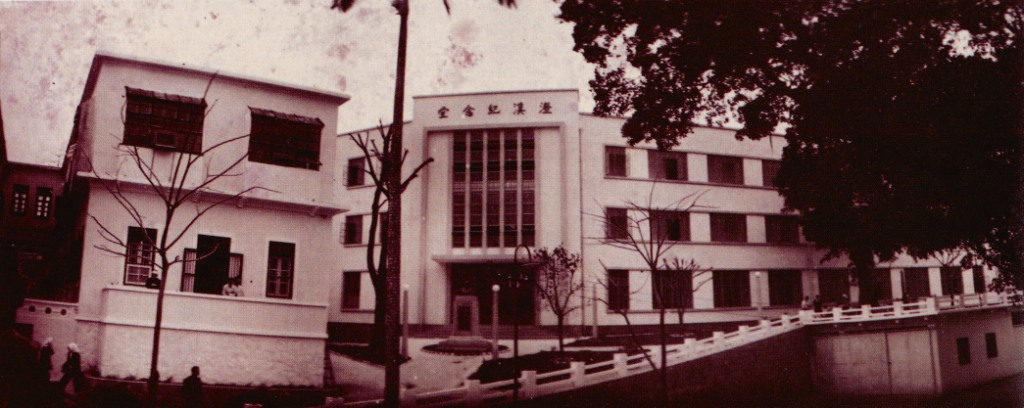
2. Formulation of Nursing and Midwifery School Temporary Regulations
In 1957, the School reviewed its school-running experience accumulated over the past three decades and formulated the "Nursing and Midwifery School Temporary Regulations" to govern the schooling system, curriculum, teaching schedule, rules and regulations of clinical study, campus life, rewards and punishments, etc. The School made an effort to strengthen the education and management of students and laid emphasis on the nurture of student virtue by arranging home visits and appointing head of discipline and class instructors. The teaching policy of "integration of listening, observation and practice" was also introduced, through which students were guided to be patient-centred, humiliate and diligent. With the implementation of the above measures, there was an obvious improvement on students' nursing proficiency and service attitude. All graduates from the School, no matter serving at Kiang Wu Hospital or other local or non-local health care institutions, were well applauded for their high level of professional competence.
In 1969, the schooling system was once adjusted to three years with the aim to recruit more students. After several years of implementation, the system was resumed to four years in 1973 to meet actual needs.

3. Expansion of School Building
Given that the space of the original three-storey school building was inadequate to cope with the rapidly growing number of nurses and students, the School decided to expand its building to four storeys and perform a large-scale renovation in 1971, thus the School and dormitory was integrated together.
4. Continuous Addition of School Facilities
During the decade between 1976 and 1985, the School undergone large transformation in terms of campus facilities. For instance, fans were installed in the dormitory, resting room for students on overnight shift was newly added, and the wooden-partitioned classrooms were turned into solid brick-built classrooms. The classroom equipment was also renewed to enhance the quality of teaching and learning. In addition, physical education classes were held to facilitate students' all-round moral, intellectual and physical development. Alongside technological development and the growing popularization of electronic teaching, the School purchased a number of teaching equipment including slide projectors, movie players, projectors and video recorders as well as an array of teaching videos. With the advanced equipment made available, teachers were able to produce video clips and filmstrips on nursing skills by themselves. The vivid teaching aids did not only attract students' attention, but also promoted their understanding of the learning materials.
In 1985, the student dormitory underwent a large-scale renovation. At that time, in order to facilitate a better management, the School developed a set of dormitory regulations and recruited wardens to monitor the dormitory. In addition, the duration of lecture and clinical study was shortened to eight hours per day to give students more time for self-studying. Considering the fact that the demand for nurses was much greater than that for midwives, the Recruitment and Admission Committee of the School approved the proposal of dividing the original four-year nursing and midwifery programme into three-year nursing and one-year midwifery programmes in 1985. Graduates of the nursing programme would enrol on the midwifery programme based on the School’s selection or on a voluntary basis. This arrangement allowed most students to enter the workforce right after graduation without taking the additional year of midwifery studies. The relevant programme design and clinical study arrangement were modified accordingly.
5. Admission Requirement Elevated to Senior Secondary Graduation
On 5 September 1989, Kiang Wu Nursing and Midwifery School gained recognition as an educational institution from the Macao Government. In the second half of the year, the School adjusted the lecture and clinical study hours of Year 1 students to facilitate the better integration of theories and practice as well as the manpower allocation of the Hospital. Moreover, in an effort to promote safety and improve the campus environment, the resting room for students on overnight shift, classrooms for clinical study and the office of Teaching Division were installed with air conditioners. Furthermore, the living allowance granted to students increased substantially.
To align with the health care and nursing development of the local society and enable nursing graduates to pursue bachelor's education in the future, the admission application has been made available only to candidates with senior secondary graduation since 1991. Moreover, to meet the requirements of the Government, the schooling system was adjusted to three years (not offering midwifery subjects) in 1992. In an attempt to popularize nursing knowledge among Macao citizens, the School launched the one year "Training Course on Fundamental Nursing Knowledge" for the first time in 1993. Since the course was practical and the classes were scheduled at non-working hours, it was well received by the participants.
Starting from 1993, with the aim to popularize nursing knowledge, the School has established a number of courses including the one-year "Fundamental Health Care Certificate Course", "Certificate Course on Gerontological Nursing", "Course for Health Assistants" and "Course on Infant Nursing". The School also put enormous effort into the enhancement of academic staff and the attainment of resources, striving to provide favourable learning environment for young people interested in the nursing profession and others from all walks of life wishing to acquire nursing knowledge. In addition, the School is dedicated to fostering high-calibre nursing professionals for Macao, enhancing all citizens' health care knowledge, caring for and benefiting the local communities.
At the beginning of 1990s, the School focused on the strengthening of three aspects, namely (1) enhancement of nursing quality; (2) emphasis on students' moral education; and (3) improvement on students' learning and living environment.
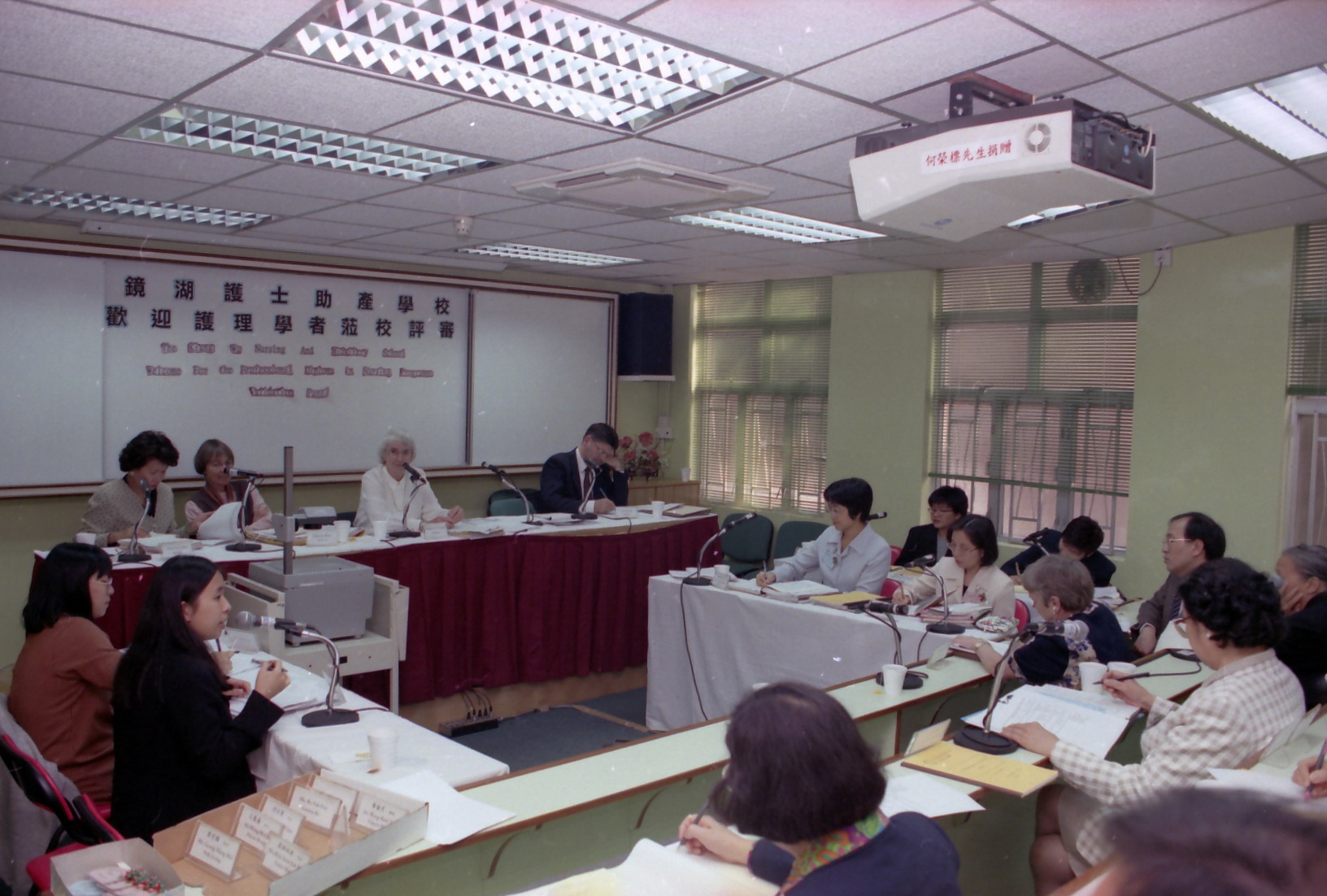
6. Nursing Education Promoted to Higher Education Level
In early 1994, qualifications of students from Kiang Wu Nursing and Midwifery School were legally recognized by the Government as equivalent to those obtained by students graduating from public schools of the similar kind.
In 1990s, the Macao Government was determined to promote nursing education to higher education level. To act in line with the Government's initiative, KWHCA conducted in-depth discussions and extensive consultations on the issue. After taking into thorough considerations the School's history and a number of factors, it was decided that the School would be promoted to a higher education institution, by means of the financial support from the Government and the technical support from the local society, Hong Kong and the Mainland.
In 1990s, the Macao Government was determined to promote nursing education to higher education level. To act in line with the Government's initiative, KWHCA conducted in-depth discussions and extensive consultations on the issue. After taking into thorough considerations the School's history and a number of factors, it was decided that the School would be promoted to a higher education institution, by means of the financial support from the Government and the technical support from the local society, Hong Kong and the Mainland.
In the process of promotion, the School received fervent support and assistance from the Macao Government, education sector, health care sector and people from all walks of life, as well as KWHCA and Kiang Wu Hospital. Nursing experts and peers from neighbouring regions were also eager to offer help and support.
On 6 June 1997, a Consultation Agreement was signed between the School and the Hong Kong Polytechnic University, under which the School formulated the curriculum of its Higher Diploma in Nursing Programme under the guidance of the University. After the curriculum had been developed, the School invited an international panel, composed of nursing experts and professors from the United Kingdom, the United States, Australia and Taiwan, to conduct a validation for the Programme within the College in early December 1997. With the approval from the panel experts, the Higher Diploma in Nursing Programme was officially launched in September 1998.
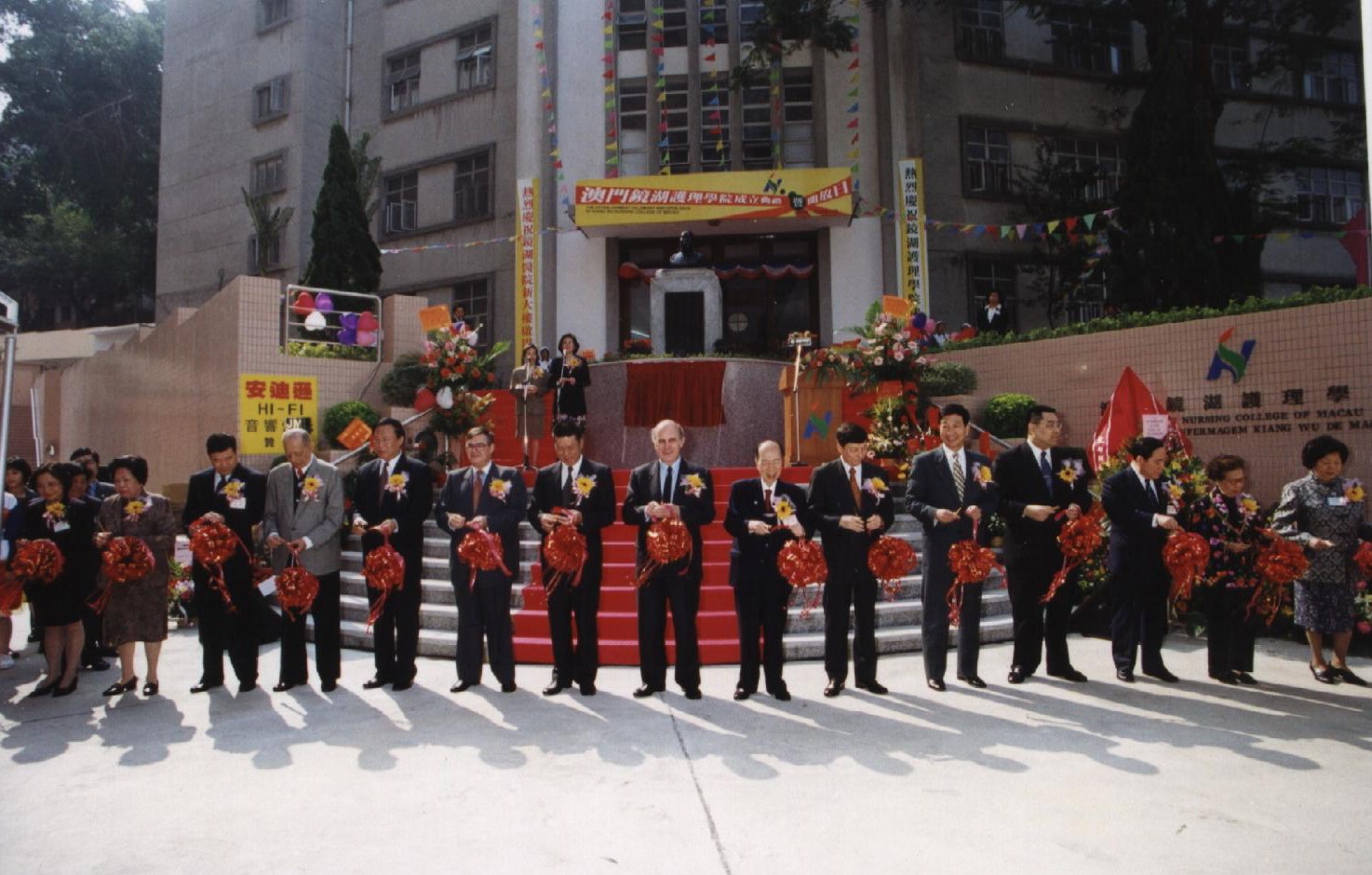
7. Co-establishment of Bachelor's Programme with Peking Union Medical College
Kiang Wu Nursing and Midwifery School (KWNMS) entered into collaboration with the School of Nursing of Peking Union Medical College for the nurture of students and academic staff. The two institutions signed the "Directional Student Nurturing Agreement" on 29 April 1998, under which in each year KWNMS could select and send two to four outstanding graduates to further their studies by enrolling on the third and fourth year of the undergraduate programme of the School of Nursing of Peking Union Medical College. Upon completion of the two-year studies and fulfilment of the graduation requirements, the students would be conferred bachelor's degree in nursing. In addition to the nurture of students, Peking Union Medical College also agreed to nurture the academic staff of KWNMS and the tuition fees were subsidized by the warm-hearted people of Macao. In 1999, KWNMS co-established the two-year "In-Service Bachelor of Science in Nursing Programme", the first of its kind in Macao, with Peking Union Medical College. The first batch of students was graduated on 21 July 2001. The Programme fostered three sessions of graduates at a number of 126 who all play crucial roles at various health care institutions in Macao.
8. Establishment of Kiang Wu Nursing College of Macau
"Kiang Wu Nursing and Midwifery School" was officially promoted and renamed "Kiang Wu Nursing College of Macau' under Ordinance No. 418/99M promulgated by the Macao Government on 5 November 1999, from when the College makes strides towards a new height of nursing education.
9. Establishment of Higher Diploma in Nursing (Supplementary) Programme
After Macau's reunification with the Motherland, Kiang Wu Nursing College of Macau launched the "Higher Diploma in Nursing (Supplementary) Programme" in February 2001 with the support of the Macao SAR Government, aiming at providing continuing education opportunity for in-service nurses. The Programme offered compulsory subjects and electives which allowed students to select the subjects according to their time available. There were 183 students admitted to the Programme and 168 graduated.
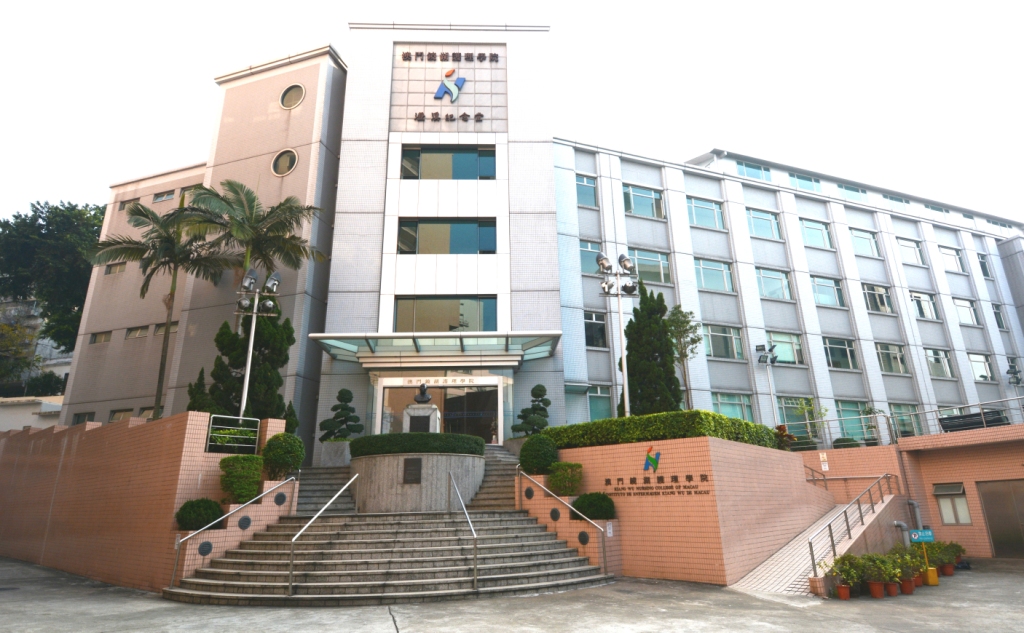
10. Campus Expansion
In response to the development needs of the College, KWNC underwent a campus enlargement in August 2001. The newly furnished building was enlarged from the former 24,000 ft2 to 42,000 ft2 where advanced teaching aids and equipment were installed, classrooms, lecture theatres, laboratories, library and recreational area were expanded and renovated, offering students a more spacious and comfortable learning environment.
11. Establishment of Bachelor of Science in Nursing Programme(BSN)
In view of social development and growing demand for high-quality nursing services, the establishment of bachelor's degree programme in nursing becomes increasingly necessary. In September 2002, KWNC was authorized the founding of its four-year "Bachelor of Science in Nursing Programme" by the Macao Government.
12. Validation for Bachelor's Degree Programme
In December 2002, KWNC invited a panel of nursing education experts from the United Kingdom, the United States, Brazil and Hong Kong to come over to the College for a validation for its Bachelor of Science in Nursing Programme. The College obtained invaluable advice from the validation panel and made relevant improvement to the Programme. Moreover, with academic staff's cumulative teaching experience, continuous improvement was made to the programme design and teaching methods. Subsequent to the validation held earlier, in pursuit of marching towards international standards, KWNC conducted another validation, namely a mid-stage validation, in 2009. In 2015, the college also invited experts from the U.K. and Hong Kong for programme validation and obtained full approval from the panel.
13. Graduation of First Batch of Bachelor's Students
After four years of striving effort of academic staff and students, the first batch of students of the Bachelor of Science in Nursing Programme graduated in July 2005, marking an important milestone of the College's development.
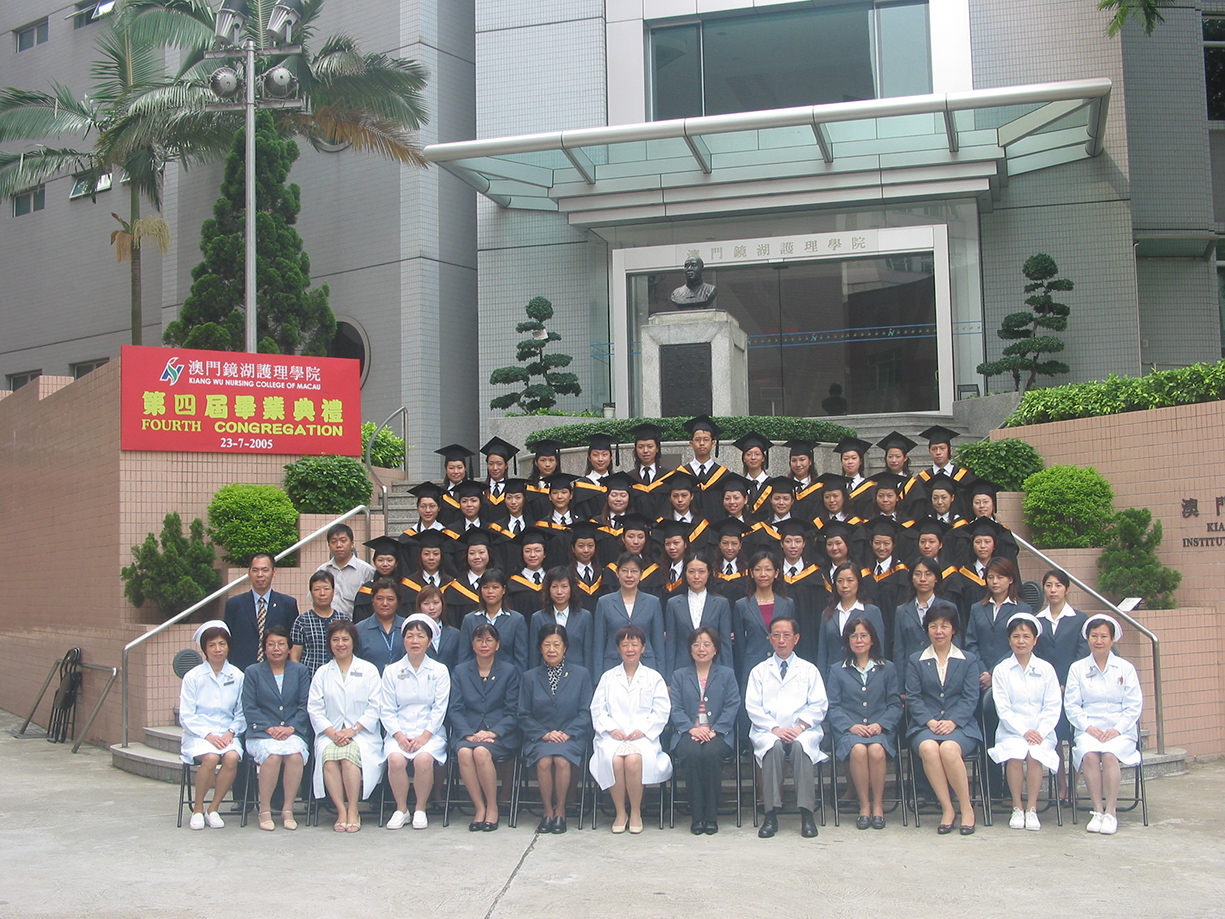
14. Establishment of Bachelor of Science in Nursing (Supplementary) Programme(BSNS)
According to a survey conducted in 2003, 49.1% of in-service nurses in Macao would like to engage in advanced learning at bachelor's level or above. This proved nursing practitioners' strong awareness of self enhancement and lifelong learning. In view of this, KWNC established the two-year "Bachelor of Science in Nursing (Supplementary) Programme" in February 2005 and received positive feedback. In 2015, this programme was validated by Thailand and the Mainland experts, and received full acceptance.
15. Establishment of Postgraduate Diploma in Advanced Nursing Programme(PDAN)
In response to Macao's health care development and the demand for high-calibre nursing talents, KWNC co-established the two-year "Postgraduate Diploma in Advanced Nursing Programme" with the Hospital Authority of Hong Kong in September 2008. The establishment of the Programme signifies the enhancement of the College's education level – from undergraduate to postgraduate. Students who have completed the Programme would be awarded Postgraduate Diploma in Advanced Nursing by KWNC and the Specialty Nursing Certificate by the Hospital Authority of Hong Kong. In response to the SAR government's requirement of the amount of clinical learning hours, to enable training highly suitable for Macau's medical system and to satisfy residents' needs, from 2017 to 2018 the clinical training bases for the three hospitals in Macau were reviewed and approved by a team of experts from Macau and Hong Kong.
16. Establishment of Master of Nursing Science Programme(MNS)
With the assistance and approval from the Ministry of Education of China, the Liaison Office of the Central People's Government in Macao SAR and the Macao SAR Government, as well as the support and trust of Sun Yat-sen University, KWNC co-established the three-year "Master of Nursing Science Programme" in Macao with Sun Yat-sen University in 2010. The establishment of the Programme brings forth another new height of the College's nursing education. Students who have completed the Programme would be awarded Master of Nursing Science by Sun Yat-sen University. KWNC is responsible for the Programme's teaching management and four of its academic staff are appointed by Sun Yat-sen University as co-supervisors to undertake part of the teaching of the Programme and provide research counselling for students. Continuing from 2017, the College had continued to collaborate with Sun Yat-sen University to hold the professional "Nursing Professional Master Degree Graduate Student Programme".
17. Founding of Nursing & Health Education Research Centre
In the view of strengthening the College's integration of teaching, researches and social services as well as acting in line with the key policies of the SAR Government in the context of an increasingly ageing society, KWNC began making preparations for the establishment of the Nursing & Health Education Research Centre (NHC) in 2006, and has launched a series of research and education projects after the inauguration of the Centre in September 2012.
The "Benevolence Lights up my Later Life: A Tailored Meta-programme to Face with Ageing Population in Macau", launched under NHC in April 2011, has been making positive achievements since its initiation. The Programme, incorporating a comprehensive education system accomplished by multi-disciplinary, multi-professional and cross-functional collaboration, gains support from the Secretary for Social Affairs and Culture of the Macao SAR Government, subsidization from Health Bureau and Social Welfare Bureau of the Macao SAR Government, as well as professional guidance from the Nethersole School of Nursing of the Chinese University of Hong Kong, the Hong Kong Alzheimer's Disease Association and the University of New South Wales of Australia. Cooperation agreements have also been signed with local community associations including Macao Federation of Trade Unions, General Union of Neighbourhood Associations of Macau and Macau Caritas. The Programme lays its primary emphasis on dementia, and on account of its effort, the prevention and control of dementia was positioned as a prioritized policy in the Policy Address 2013 of the Macao SAR Government. Incumbent Chief Executive Dr. Fernando Chui Sai On also highlighted the prevention and control of dementia in his election platform in 2014.
Currently, the three areas in which the Nursing and Health Education Research Centre has achievements in are cognitive assessment for older persons, life and death education and community care.
18. Establishment of Nursing Preceptor Training Committee
KWNC and Macao Polytechnic Institute School of Health Sciences and Sports initiated to develop a means of promoting the quality of clinical teaching and establish a system to regulate the practice of clinical teaching. The two schools worked with nursing leaders from local health care institutions to form the 12-member Nursing Preceptor Training Committee in April 2007. The participating institutions include Conde de São Januário Central Hospital, Kiang Wu Hospital, University Hospital of Macau University of Science and Technology and Health Centres of the Macao Government. With the aim to foster qualified nursing preceptors who are well-equipped with both theoretical knowledge and practical skills, the Committee organizes the "Nursing Preceptor Training Course" and "Nursing Preceptor Advanced Training Course". Students who have completed the "Nursing Preceptor Training Course" would be awarded the title of "Nursing Preceptor" by the Committee and be listed in the register of nursing preceptors.
19. Establishment of Benevolence Education Centre to support student affairs service
To provide better integration of curriculum and student affairs service, nurture students thus they can have holistic growth, and reach the target of being benevolent, "Benevolence Education Centre" was founded under the Education Department in 2013. In the form of teamwork, student affair services are provided to students, team members includes Student Affairs Officers, Student Affairs Coordinators, Class Advisers, Mentors of Sub-club and Counsellors. Under the leadership of the College's president, with concerted efforts, the College provides learning, student life and psychological education and counselling to students. The College also exerts the spirit of peer learning, let students study at ease and mature together in a caring environment.
20. Expanding campus
To relieve the tension of having limited laboratory space, and to implement teaching and research integrated services for residents, the College has rented Kiang Wu Charitable Association's Tung On Building and renovated it and transformed it into Tung On Nursing Laboratory and Nursing & Health Education Research Centre. It was officially in operation from 2012. There are nine bed units in Tung On Nursing Laboratory, in which central negative pressure and compressed gas devices are installed in each unit, for practicing in emergencies with critically ill patients. This is to train students to cope with clinical situations. One way mirror cabinet and automatic recording system are installed in three of the units. Students can use this system to make their own footage and by reviewing their recordings they can make evaluations and enhancements. When teachers use this system to assess students’ learning progress, consistency and objectivity can be achieved.
To resolve the issue of having severely limited space, ensure teaching and learning quality, with the support of the SAR government and Macau Daily News, the college borrowed 13th to 16th floor of Macau Daily News Building for teaching venue and named it as KWNC Mong Ha Campus. In October 2012, the renovation project began. The furnishing design and equipment used were based on teaching requirement. It is also centred on the principle of simplicity, frugality and environmental protection, to accommodate main campus and the transition to the Islands Medical Complex new campus in the future, with accompanying functions, teaching support and convenient management as the aims. The Mong Ha campus added classrooms, seminar rooms, specialist laboratories, Nursing & Health Education Research Centre, research facilities and student activities venues that are currently lacking. There was the expansion of the library, with the addition of e-books and extra updated teaching equipment, which enriched the teaching environment. The campus was officially in use from September 2013.
21. The new mode of Collaborative Training Programme for Senior Nursing Talents
To strengthen the clinical experience of teachers and reinforce the theoretical foundation of clinical nurses, "Kiang Wu Hospital and Kiang Wu Nursing College Collaborative Training Programme of Senior Nursing Talents" was established in 2013. Both parties appointed teachers / nurses to participate in teaching / clinical work. To enable clinical nurses and nursing teachers to exchange roles in a professional scope, which truly raise the comprehensive ability of clinical, teaching and scientific research.
The course collaborated with Escola Luso-Chinesa Tecnico-Profissional (ELCTP) marks a new milestone in vocational and technical education in Macau
To enable ELCTP secondary students plan their future careers ahead and cultivate nursing talents, in 2014, Nursing & Health Study Centre (NHSC) and ELCTP jointly launched a three-year "Health Care Course". The course enable high school students who are interested in a medical care profession to comprehend the nature of nursing work and acquire health care knowledge and skills in advance. There is a certain percentage of these high school graduates who are enrolled in medical courses such as medicine, nursing, physical therapy etc.
23. The College has been highly acclaimed by international institutional quality audit
To raise operating standards and academic image and fulfil the requirement of Institutional quality audit of the new Higher Education Regime, the College has been enhancing internal quality assurance system, as well as inviting external organizations to conduct quality audits. KWNC invited the Quality Assurance Agency for Higher Education (QAA) from the United Kingdom to carry out an Institutional Quality Audit for the College in 2015. QAA analysed the self-evaluation and associated documentary evidence prepared by KWNC and appointed a review team to Macao to visit the College. The QAA review team placed confidence in four aspects of KWNC namely academic standards, quality of learning opportunities, published information and approaches to quality enhancement. In addition, the team identified four features of good practice at KWNC, which are the College's academic level, the extensive range of support for student learning, and the achievement of high levels of graduate employment and the proportion of graduates pursuing further study etc.
24. The launch of training Course for In-home Elderly Caregivers timely addresses society's demand
In response to the pressure, concern, urgent need and importance of senior citizens' care in the community, Nursing & Health Study Centre (NHSC) launched the "Training Course for In-home Elderly Caregivers" since 2015. Through techniques such as teaching, playing games, sharing and practice etc. caregivers' caring ability and confidence are consolidated, and enable them to deal with health problem arose during the process of looking after patients, thus patients can enjoy living in a dignified and safe environment.
25. The bachelor's degree programme is designed with a performance-based curriculum and is the first programme to have English-specialized Classes and Chinese-specialized Classes.
After reviewing the 2015 curriculum, the curriculum was refined with reference to expert opinions, and KWNC adopted an achievement-based curriculum design, and adjusted the theoretical and practical teaching hours on par with international standards and local nursing requirements. In the four years of study, two sets of new and old textbooks are adopted, and teaching language used in lessons is reformed. Based on the English ability of the students, the fresher are divided into English-specialized Classes and Chinese-specialized Classes. 30% of the course is taught in English in the Chinese-specialized Classes, while in the English-specialized Classes, 50% – 60% of the course is taught in English.
26. Training for Certified Dementia Care Planner
In 2017, KWNC, Hong Kong Alzheimer's Disease Association and Macau Alzheimer's Disease Association jointly established Certified Dementia Care Planner Course for the first time. This course was professionally accredited by the Alzheimer's Disease International (ADI). The course aims to train frontline professionals working in Macau's nursing homes to provide a more comprehensive care plan for dementia patients and their families. The Social Welfare Bureau recommends personnel from its sponsored institutes to enrol for the course, participants include doctors, nurses, social workers, physiotherapists, occupational therapist and health related professionals.
27. Non-Nursing Professional Higher Education Course
The College launched the "Certificate Programme in Applied Gerontology" in 2017. This course is the first non-nursing professional higher education course established by KWNC. Students of this course have different professional background, namely doctors, nurses, physiotherapists and social workers.
28. Launching KWNC's own Master's Programme for the First Time
With the progress and development of the society and disease types constantly changing, the quality, skills and research ability of nurses need to keep pace with these variations. After more than 10 years of preparation, the College invited Australian, Hong Kong and Mainland nursing experts to conduct new programme accreditation in 2017. In 2018, the Macao SAR Government approved KWNC to establish its own "Master of Nursing Programme". The course is a two-year programme. The curriculum is formulated based on the suggestions of local and neighbouring medical and social services organizations, medical professional bodies and graduates of bachelor's degree, experts and scholars. It is in line with the actual social and medical services' situations and is on par with international trends. This nursing master's programme is the first college-level programme approved in Macau history.
29. Establishment of the Hengqin Hospital Training Base
In order to implement the “Outline Development Plan for the Guangdong-Hong Kong-Macao Greater Bay Area”, to contribute to the development of a healthy Bay Area, and to support the implementation of the “General Plan for Building a Guangdong-Macao In-Depth Cooperation Zone”, the College set up the “KWNC Training Base in Hengqin Branch of Zhuhai People's Hospital of Zhuhai People's Hospital Medical Group”. The training base provides a platform to further promote the College's training programmes and exchange activities in the fields of nursing, healthcare, and elderly care in Guangdong Province, creating wider clinical learning and exchange opportunities, as well as an opportunity for Macao youths to learn about and grasp the medical and nursing development in the Greater Bay Area, and to integrate into the overall development of the country.
30. Completion and the Opening of the New Islands District Medical Complex Campus
In the 2012 Policy Address, the Macao SAR Government announced the construction of a new campus of the College next to the Islands District Medical Complex. A tripartite meeting comprising representatives from the Health Bureau, Kiang Wu Charitable Association and the contractor was initiated in 2014 to exchange and agree on the design and construction plan of the new campus. The new campus have a total gross floor area of approximately 33,400 square meters, with 16 stories on the ground floor and 3 stories in the basement, making a total of 19 stories. On 12 May 2022, Lau Veng Seng, President of College Council of Kiang Wu Charitable Association and Kong Chi Meng, the Education and Youth Development Bureau (DSEDJ) Director, signed an agreement on the New Kiang Wu Nursing College of Macau (KWNC) Campus at DSEDJ. The College was granted permission to use the nursing teaching building of the Islands District Medical Complex for non-profit-making tertiary activities and to move out of the old campus, the Cheng-Kai Memorial Hall and the Mong Ha Campus, into the new site of the Islands District Medical Complex Campus from June to August 2022. Several floors of the new building are occupied by other government departments. Expansion and the increase of various types of classrooms, function rooms and teaching facilities to meet the College's development and needs of students. This includes the expansion of the Library, Nursing & Health Education Research Centre and Professional Competence Development Centre, basic and specialized nursing laboratories, Simulated Infectious Disease Ward and VR Virtual Ward, Standardized Objective Structured Clinical Examination (OSCE) Centre, and the Life Journey Experience Pavilion. The campus also have basic medical laboratories, various types of classroom, counselling rooms, discussion rooms, Benevolence Education Centre and dormitories for students and teachers will be provided.
31. Establishment of the Healthy Ageing Research Centre
The College has always attached great importance to the issues of ageing society and elderly health. By focusing on research in the areas of elderly health and dementia, the College is committed to providing better quality of life and long-term care services for the elderly, as well as raising the public's awareness of dementia. In recent years, the College's research teams have conducted a number of local and cross-regional studies with good results. Against this background, the College established the Healthy Ageing Research Centre in 2023 to bring together teachers and researchers from different professional fields to collaborate and carry out interdisciplinary research, to explore the issue of elderly health in a more holistic manner, and to enhance the College's research capacity in the area of ageing and health, with a view to becoming a leader in the area of regional health and elderly care policy.
32. Celebration of 100th Anniversary
In 2023, Kiang Wu Nursing College of Macau (KWNC) celebrated its 100th anniversary. Since its establishment, the College has been blessed with many opportunities, and at the same time, faced with many difficulties and challenges. The College team has always moved forward with the greatest vigor, indomitable spirit and perseverance, and has always adhered to the mission of nurturing outstanding nursing and healthcare science talents. At every stage of its development, the College has received strong support and encouragement from the motherland, the SAR government, the Liaison Office of the Central People's Government in the People's Republic of China, the Office of the Commissioner of the Ministry of Foreign Affairs of the People's Republic of China in Macao, and various social organizations and members of the public in the Mainland and overseas, as well as the cornerstones laid down by the Chairmen of the Kiang Wu Charitable Association and the College Council and the predecessors, the long-standing support and love of the alumni and retired staff, and the hard work of the staff and faculty members, who have been dedicated to the cause of nursing education for a long time. A group of teachers and staff who have been working hard for the nursing education for a long time and have made selfless dedication to the nursing education cause have made Kiang Wu Nursing College of Macau what it is today.
33. Future Development
With the relocation to the Islands District Medical Complex Campus and the new journey towards its second centenary, the College will increase the number of students to meet the needs of the society, expand its teaching space and upgrade its hardware and software facilities, and is confident that it will open up new horizons in the areas of higher education in nursing, education for all in nursing and healthcare, continuing professional development for professionals, and research and community services, with a view to building a renowned tertiary education institution in the Greater Bay Area.
Strive for Competence and Integrity
Serve with Professionality and Care
Contact Us




 Tel: (853) 8295 6200
Tel: (853) 8295 6200 Fax: (853) 2836 5204
Fax: (853) 2836 5204 Email: admin@kwnc.edu.mo
Email: admin@kwnc.edu.mo
Institutional Accreditation (IA) &Nursing Education Accreditation
 |
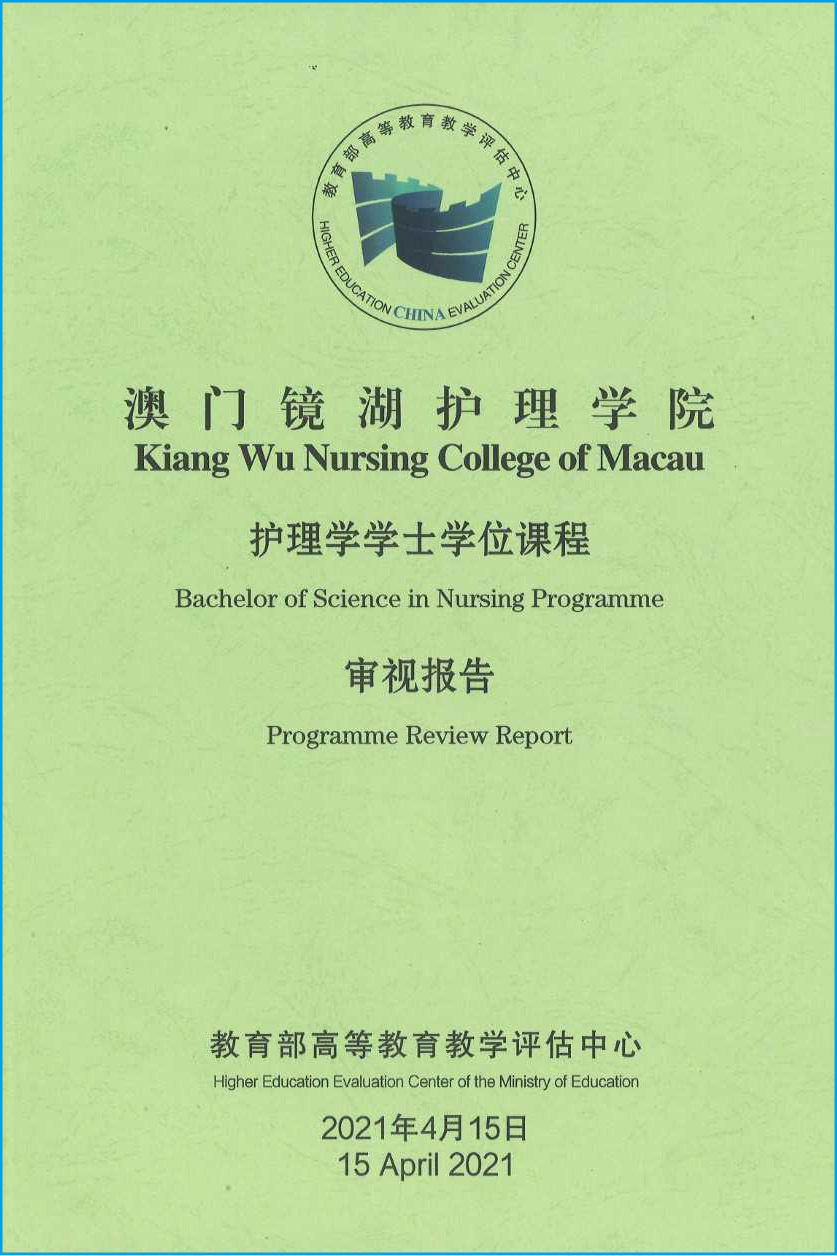 |
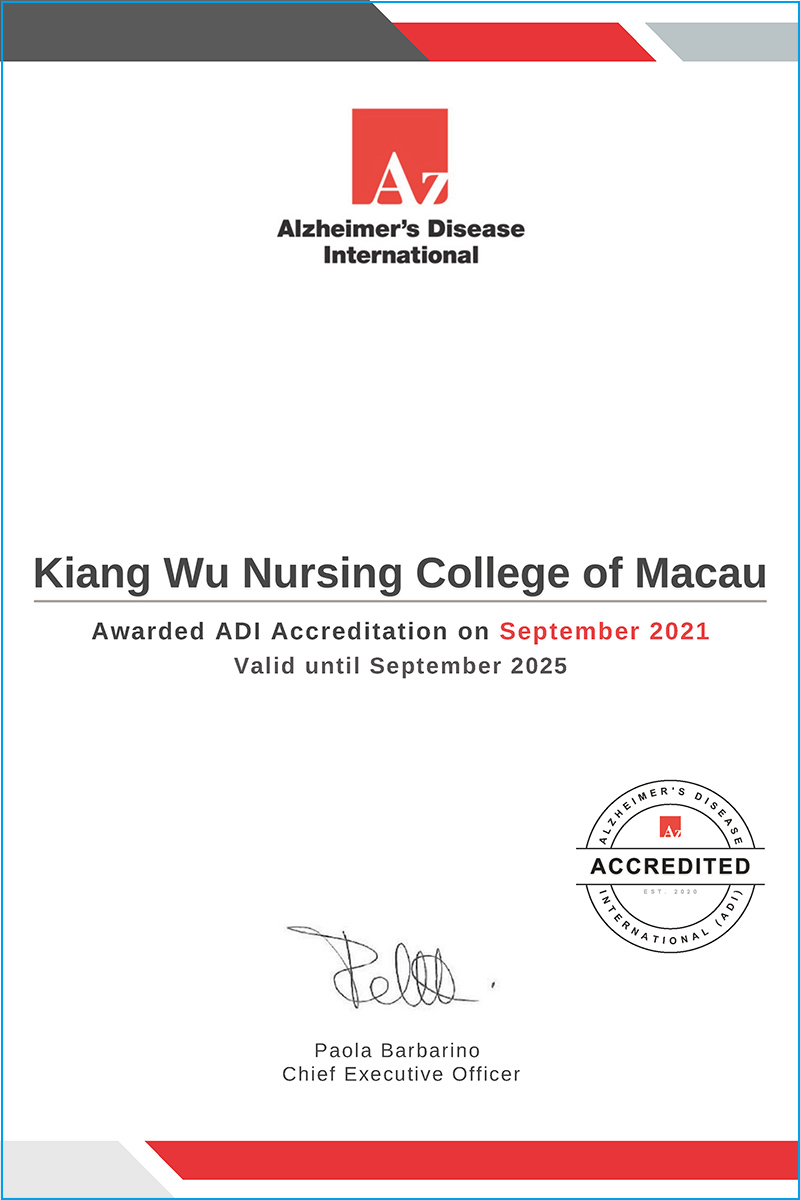 |
| The Quality Assurance Agency for Higher Education (QAA): Institutional Accreditation |
The Motherland's Education Quality Evaluation Agency of the Ministry of Education:
Nursing Education Accreditation |
Course provider of Alzheimer's Disease International (ADI) |
Copyright © 2024 KIANG WU NURSING COLLEGE OF MACAU










